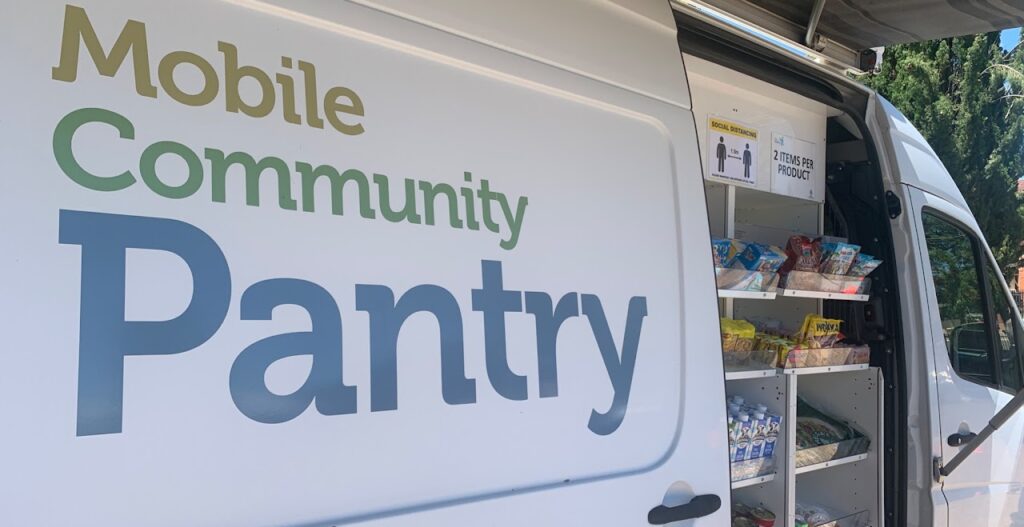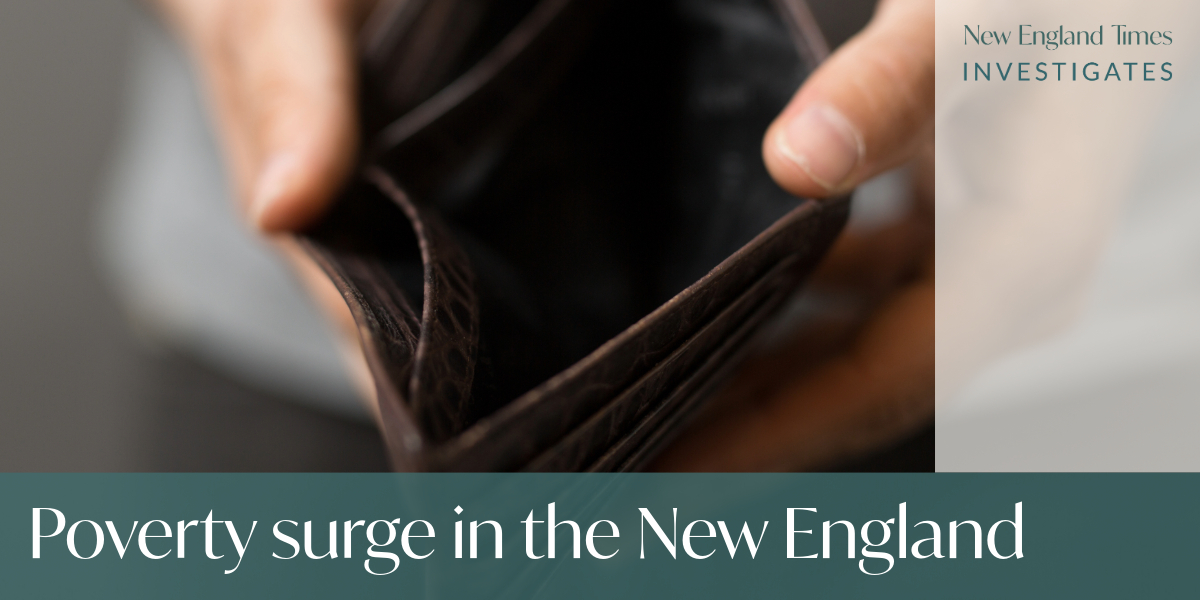From the undulating hills of Willow Tree in the south to the sunburnt vistas just shy of Queensland, the New England region is an idyllic slice of New South Wales that many people call home.
And it’s not hard to see why. Aside from the natural beauty on display, the region is punctuated for several hundred kilometres by hamlets, small towns, and regional centres servicing agriculture, education and health. There’s no shortage of quaint coffee shops or retail outlets along the way, and schools have thrived for decades throughout the region catering to day students and boarders. We even have our own university.
It would seem like there’s something for everyone – or is there?
Data and reports from those who work in the sector indicate the New England region is facing an escalating crisis of poverty and economic disadvantage.
With increasing numbers sleeping rough and more than ever forgoing essentials, the stark reality is that inequality is deepening in the region.

Increased cost of living driving increased poverty
Data from the NSW Council of Social Service (NCOSS) paints a grim picture. According to the NCOSS Cost of Living in NSW 2024 report, 57 per cent of New England North West households have used by now pay later services to pay for essential services, and 61 per cent could not pay utility bills on time at least once in the last 12 months. 84% of New Englanders don’t have funds set away for emergencies.
NCOSS CEO Cara Varian warns that these figures only scratch the surface.
“Our frontline community organisations report more people seeking help than ever before,” she said.
“Even families with dual incomes are now unable to make ends meet, having drained their savings just to put food on the table.”
The report highlights additional alarming statistics and clear trends things are getting worse. 64 per cent of the respondents said they had been unable to travel for essential reasons due to costs, up over 15 per cent on last year, while 57 per cent had forgone prescribed medication or healthcare because they couldn’t afford it, up from 41 per cent last year.
Housing at the core of the crisis
Affordable housing is a central issue in New England’s economic struggle. Maree McKenzie, CEO of Homes North, emphasises that low-income households face significant difficulties in accessing affordable housing, leading to an increase in homelessness and housing instability.
The 2024 NSW Street Count, the NSW Government’s fifth annual rough sleeping street count, was completed between 1 February and 1 March 2024, revealed that 2,037 people were found sleeping rough, a 26 percent increase from the previous year. Of these individuals, over 1000 are from Mid North Coast, New England, and Northern NSW, with over 60% living out of their car. The problem has become critical, McKenzie said, with more people staying in temporary accommodation for extended periods as they have nowhere else to go.
While homelessness is often attributed to poor life choices, McKenzie dispels this notion.
“This issue affects everyone; it doesn’t discriminate,” she said.
Particularly alarming is the rise in youth homelessness, with some as young as 16 or 17 left without a roof over their heads.
Poverty becoming entrenched across the region

Clare Van Doorn, regional director of Vinnies, has seen first-hand how poverty is becoming more entrenched.
“We’re seeing a surge in people seeking support, including those who were previously self-sufficient,” she said.
A disturbing new demographic is the ‘working poor’ – people employed full-time but still struggling to cover basic necessities. Vinnies’ data from the Armidale region shows that of the 3,607 people assisted last year, four in five requested help with food, while two in five were suffering from housing stress.
Van Doorn describes a palpable sense of anxiety among the community.
“If someone is earning $700 a week and paying $600 in rent, how are they supposed to cover food and other bills?” she asked.
The financial strain on charitable organisations is also increasing. “
We’ve already exceeded last year’s budget due to the sheer number of people seeking aid.”
One individual, who we’ll call Sam, opened up on their struggles over the last few months:
“I’m unable to work, and I lost my licence both due to medical reasons, so I’ve gone from having an income and walking 5-6km a day to being in a pinch and pacing around my home in a walker.”
Sam accesses a community pantry for basic groceries at affordable prices which help ease the financial burden she now finds herself in.
“Proving to Centrelink that you need a pension is hard work when I’m not at retirement age yet, and I’m taking money out of my super.”
Sam has had to forego certain medical necessities, and in some instances, “white knuckle it”:
“I had a tooth that was loose in my mouth for three or four months, and I couldn’t afford to pay the $360 for the dentist so you just deal with it.”
Sam stresses that the cost of living can affect anyone at any time,
“I didn’t like the idea of the pantry, because I thought ‘that’s not where you go’, but It’s a great initiative, and really these things can happen to anyone.”
Vulnerable groups feel it more
While poverty can affect anyone, particularly hard-hit are Indigenous communities, which make up nearly 49 percent of those receiving assistance in New England. Aboriginal and Torres Strait Islanders make up 11.9% of the population in the New England North West.
According to Major Tony DeTommaso of the Salvation Army in Tamworth, some groups in New England are disproportionately affected by poverty. These include Indigenous communities, single-parent households (often headed by women), individuals with disabilities, and young adults transitioning into the workforce.
“Poverty is not the result of poor choices,” DeTommaso said.
“It’s shaped by social, economic, and political factors, and can affect anyone due to unforeseen circumstances like job loss or illness.”
Older adults, too, are finding it increasingly difficult to meet basic needs on fixed incomes as the cost of living rises.
Financial counsellors like Sandy Avis from Centacare are witnessing the toll that poverty and economic hardship are taking. She noted that an increase in gambling is one indicator of people trying desperately to make ends meet.
“People are struggling and turning to whatever means they can to get by,” Avis said, adding that even those with modest incomes are being pushed into financial despair.
Avis has also seen the intergenerational poverty cycle tighten its grip on families.
“It’s not as simple as telling people to move to more affordable areas,” she explained.
“Without stable housing or job security, uprooting your life is nearly impossible. And the mental health issues that many are dealing with only add layers of complexity.”
Not geared up for this

Senior Minister at St Peter’s South Tamworth Xavier Lukins has been working for his church for eleven years, and has noticed an upward trend in door knockers coming to the office seeking immediate assistance. St Peter’s South runs a fortnightly mobile community pantry in partnership with Anglicare, providing bags of groceries worth around $70 for $15.
“Our pantries definitely empty out pretty quick.”
Lukins says amongst food, people also ask for fuel, money, or even accommodation.
“Most days we get one up to three, maybe even four, people turn up. We’re not geared up for the accommodation thing, and we don’t know where that money might be going.”
“Often they’re turning up for food. They know this is a place where they’ll get food, so we give them a bag.”
“I’ve heard there are up to 200 people who are homeless here in Tamworth; I don’t know to be honest what the state or federal government is doing for those people,” Lukins said.
This crisis, affecting all demographics, shows no signs of abating. As poverty and economic disadvantage continue to grow across New England, the community’s resilience is being tested like never before. Charitable organisations are doing what they can, but without significant changes in housing policy, economic support, and social services, the region’s future remains uncertain.
In part two of our investigation we’ll dive deeper into the causes of the surge in poverty in New England.
Our thanks to Steve Katte, Jo Dolan, and the Investigations Team for contributing to this investigation.
If you need help or are upset by this story, please seek support.
- 1800 RESPECT (1800 737 732)
- Lifeline 13 11 14
- 13Yarn 13 92 76
Like what you’re reading? Support The New England Times by making a small contribution today and help us keep delivering local news paywall-free. Support now

